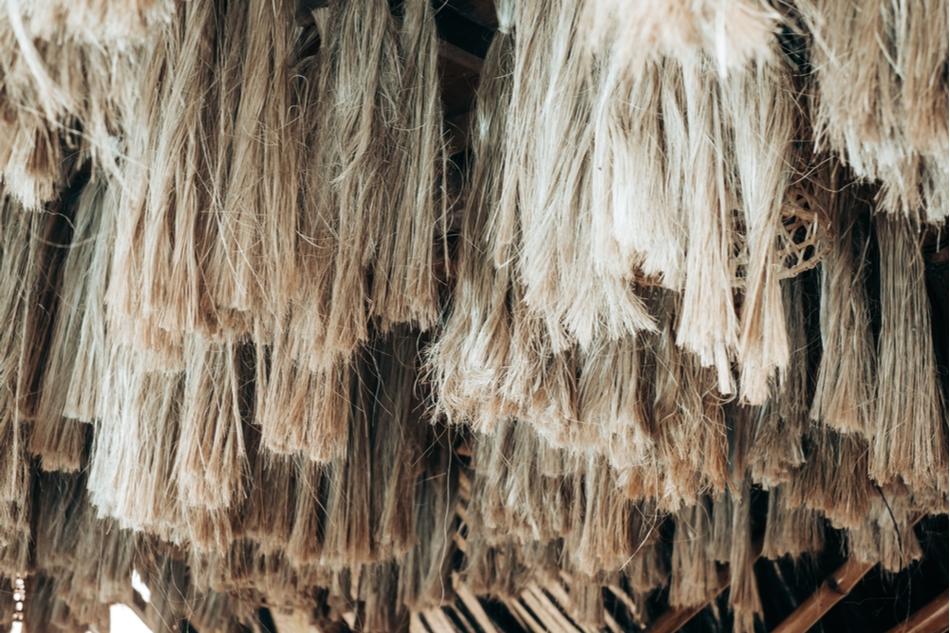
This concrete-like material was made from waste sea shells
The seafood and aquaculture industry produces tons and tons of waste seashells. Looking to make something from all this waste, a design firm called Newtab-22 has used them to develop a sustainable material that resembles concrete. Named Sea Stone, the material is made by grinding down shells that Read More...

These effective face masks are made with abaca leaf fibers
Rather than make masks from plastic-derived materials, a company in the Philippines has turned to abaca leaf fibers. As reported by Bloomberg, abaca is as strong as polyester, but unlike polyester, it can decompose in just two months. The fiber is commonly used in the Philippines to make things Read More...

This beautiful concrete home has trees spilling out the windows
We don’t typically publish stories about the design of individual homes, but sometimes you need to give credit where it’s due. In Ha Long, Vietnam, an architecture studio has created a stunning concrete home that has trees spilling out its windows and balconies. As Curbed writer Liz Stinson Read More...

This series will take you to the world's most ingenious homes
We at the Optimist Daily are always curious about the latest developments in architecture and design. It came to our attention that Apple TV+ has a pretty incredible documentary series out that will take you to some of the world’s most intriguing dwellings. All the episodes in the series Read More...

Japanese scientists use nanocarbons to cleanse water of toxic metals
The presence of toxic metals in water stemming from industrial sources makes treatment a tall order, with these polluted liquids capable of contaminating groundwater supplies for years or even decades thereafter. Scientists at Japan's Nagoya University have come up with a new technology that may Read More...

In this Dutch neighborhood, there's 1 vehicle for every 3 households
The Netherlands is well-known for being the ultimate biking country, and, today, pedestrianized city centers are also the norm in many of the country’s urban areas. Still, in the country’s major cities, vehicles still tend to dictate the design of most public spaces. In an effort to change Read More...

This beautiful lampshade is made from old cabbage leaves
Designers from London are making beautiful lamps from an unlikely source: old cabbage leaves. The beauty of a cabbage leaf might not be obvious to everyone, but when it’s dried, molded, and coated with non-toxic chemicals, it really starts to shine. The organic lamp, called “Veggie Read More...

This compostable food packaging was made using wasted shellfish shells
Wrapping food in plastic does serve a purpose. A plastic-wrapped cucumber at a supermarket may seem egregious, but the vegetable lasts longer and is less likely to end up as food waste; throwing out food can have an even bigger impact on the environment than the plastic itself. But the system’s Read More...

This stylish cafe is made almost entirely out of cardboard
Lowering the environmental impact of the construction industry means finding new materials to build with. In India, an architecture studio turned to an unlikely material to build a beautiful cafe: cardboard. Apart from the core, shell, and appliances in the cafe, everything has been made from Read More...


